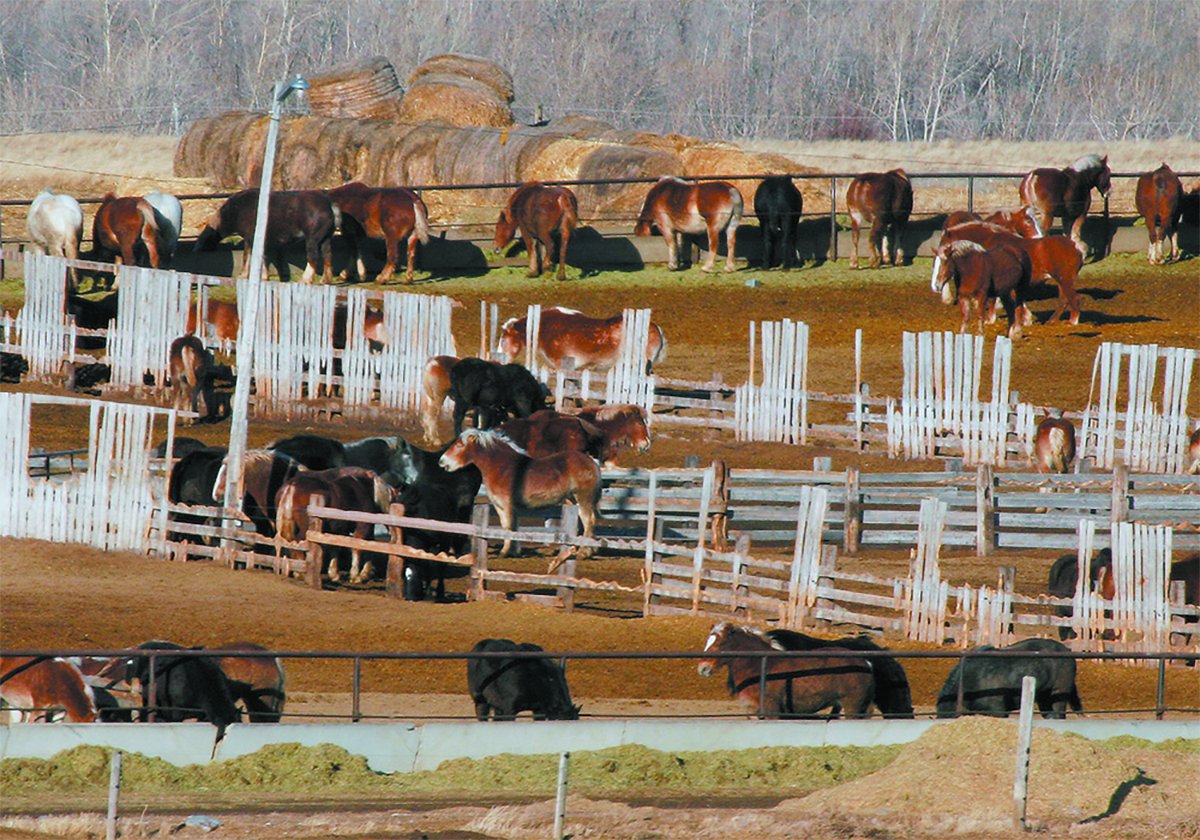Alberta’s agriculture minister said meaningful progress must be made at the next round of world trade talks in Qatar if the province’s agriculture industry is to continue growing.
“It can only grow if we can continue to get trade liberalization. We’ve seen some progress from Uruguay, but not enough in our opinion,” said Shirley McClellan, who is also deputy premier. Alberta has the second largest farm economy in Canada, behind Ontario.
She addressed her concerns to the Canadian Agri-Food Trade Alliance, a coalition of 12 organizations formed in the spring of 2001. The group wants liberalized trade through greater market access, as well as elimination of tariffs, export subsidies and domestic programs that distort markets.
Read Also

Canada’s slaughter horse industry lacks transparency
The lack of clear reporting and public access to data keeps the industry largely hidden, leaving questions about humane treatment and traceability unanswered.
The Uruguay round was important because it was the first time agriculture was a negotiable sector. However, the world trade agreement did not make enough headway in dealing with unfair domestic subsidies and tariffs, McClellan said.
There are still more than 1,300 tariff rate quotas in existence and support levels in the developed nations are as high as they were in 1986 and 1988.
“If we don’t make strides in this one, I don’t know how long we can hold on,” said McClellan. “It is urgent that we make good progress in Doha. I thought we were making good progress in Seattle. I saw the developing countries were having their concerns heard, but I also saw how quickly one or two things could blow the whole thing.”
Support to the grain industry, for instance, continues to be high. Subsidy support for the American grain industry is at 47 percent, Japan provides 86 percent, Canada is at 17 percent and Australia is at six percent.
She is concerned the United States may shore up agriculture even more in its next farm bill and the European Union appears to have no intention of substantially reducing direct farm support.
High levels of support in other nations discourage Canadian farmers who have seen substantial reductions in their domestic farm programs. However, provinces like Alberta have provided some relief for farmers devastated by bad weather and low commodity prices.
This spring Alberta and Ottawa provided a $10.29 per acre payment. McClellan said the money was not really adequate and it violated the province’s wish to stay out of the subsidy game.
“We didn’t feel we had a choice with the conditions that are out there,” she said.

















